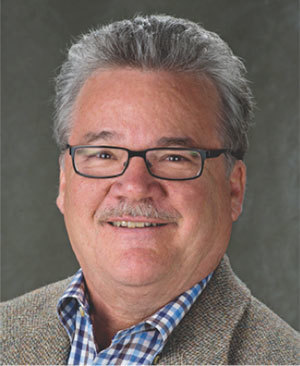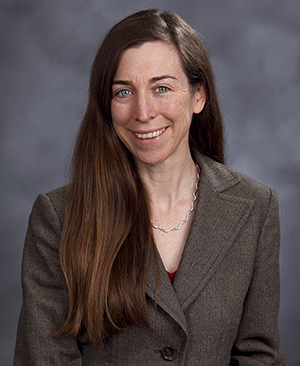 John Welle
John Welle
Two faculty members from the University of Notre Dame’s College of Arts and Letters will spend time researching and writing two books after winning fellowships this year from the American Council of Learned Societies (ACLS).
John P. Welle, a professor of Italian in the Department of Romance Languages and Literatures and concurrent professor in the Department of Film, Television, and Theatre, was awarded the fellowship to complete his book “The Poet and the Diva: Print Media from the Golden Age of Italian Silent Film.”
Eileen Hunt Botting, an associate professor in the Department of Political Science, received the award to support her book project, “Frankenstein and the Question of Human Development.”
The ACLS awarded 70 fellowships from a pool of more than 1,000 applicants.
Welle examines discourses on stardom and celebrity from 1890 to 1920, when the Italian film industry flourished by promoting poets and divas. His interest in the golden age of Italian silent film grew from a desire to create new knowledge that expands what is possible to teach in Italian film history, he said.
“The field has been focused on contemporary films and films from the 1950s onward,” Welle said. “Scholarship should extend the range of what we know and, therefore, can teach. The particular focus I pursue — print media in relation to the flowering of film production in Italy known as the golden age — stems from my longstanding interest in the relationship between film and literature in Italy.”
By 1914, not long after the birth of silent film, Italy already had more than 100 periodicals devoted to cinema. Through analyzing print media — short stories, novels, biographies, film journals, acting manuals, and interviews with actors and actresses — Welle hopes to bring forward “the parameters of the celebrity culture of an important historical moment, just before fascism.”
“My book is a cultural history of the emergence of cinema in Italy that also puts into conversation the history of theater and of literature with politics and celebrity culture," he said. "I hope the reader will see the similarities between the period and the celebrity culture of our own moment in history, and understand the dangers when the boundaries separating entertainment from journalism and politics become blurred.”
Welle’s research informs his courses at both the undergraduate and graduate levels.
“I encourage students to explore primary documents, many of which can be located online, and to test and exercise their abilities to interpret,” he said. “I also use the poetry that I have translated to teach modern Italian literature and film history, using literary works that are relevant for the history of film and media.”
 Eileen Hunt Botting
Eileen Hunt Botting
Botting’s work will examine Mary Shelley’s “Frankenstein” as a literary form of political philosophy that presses readers to consider the fundamental rights bestowed upon children at birth.
“Shelley wrote a philosophical novel that allows us to explore the issue of basic human rights,” Botting said. “She’s setting up a kind of philosophical thought experiment that enables readers to envision and justify the fundamental rights of children to care and education.”
Born in 1797, Shelley was the daughter of political philosophers William Godwin and Mary Wollstonecraft. Her mother wrote on the importance of educating children, a concept Botting believes was key to Shelley’s mode of thought when writing her novel.
Through five years of teaching a course on Wollstonecraft and Shelley in the Glynn Family Honors Program, Botting said, she and her students have come to see the creature not as simply a warning about the dangers of overreaching science — a classic interpretation of “Frankenstein” — but as a newborn who came into the world with certain rights that were ignored by his father and, later, a society that is horrified by his crimes.
The creature’s violence stems from being misunderstood while on a quest for things that should have been guaranteed upon his “birth,” such as food, shelter and love.
“Those classes and students really pushed me to see the creature as an innocent who has been harmed by society,” Botting said. “He has to raise himself and try to become a moral being on his own. Shelley is basically asking for you, as a reader, to see the creature as an abandoned baby and feel what it would be like to be so abandoned. Most readers will see his descent into crime as a result of his abandonment by his father and his mistreatment by society.”
A fellow of both the Kroc Institute for Peace Studies and Nanovic Institute for European Studies, Botting hopes to complete her book by 2018, the bicentennial of Shelley’s work.
Originally published at al.nd.edu on Aug. 17.